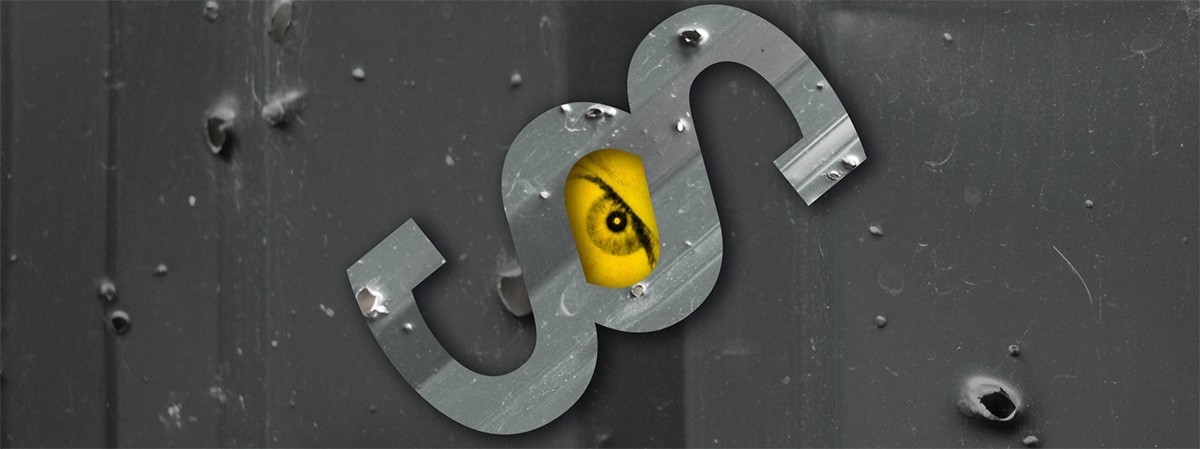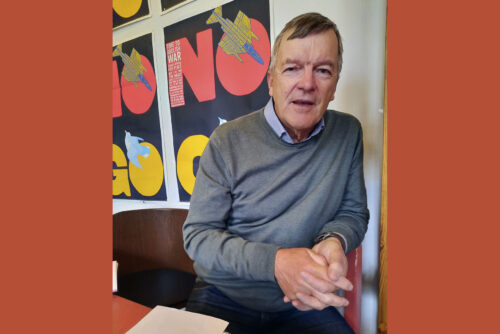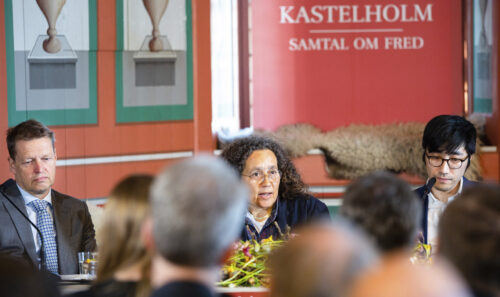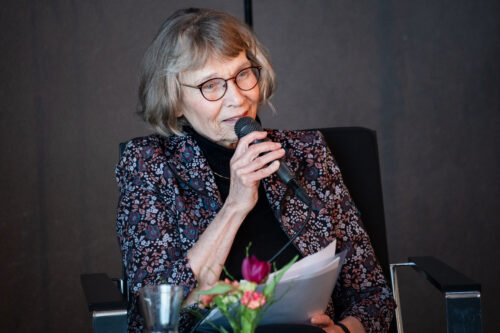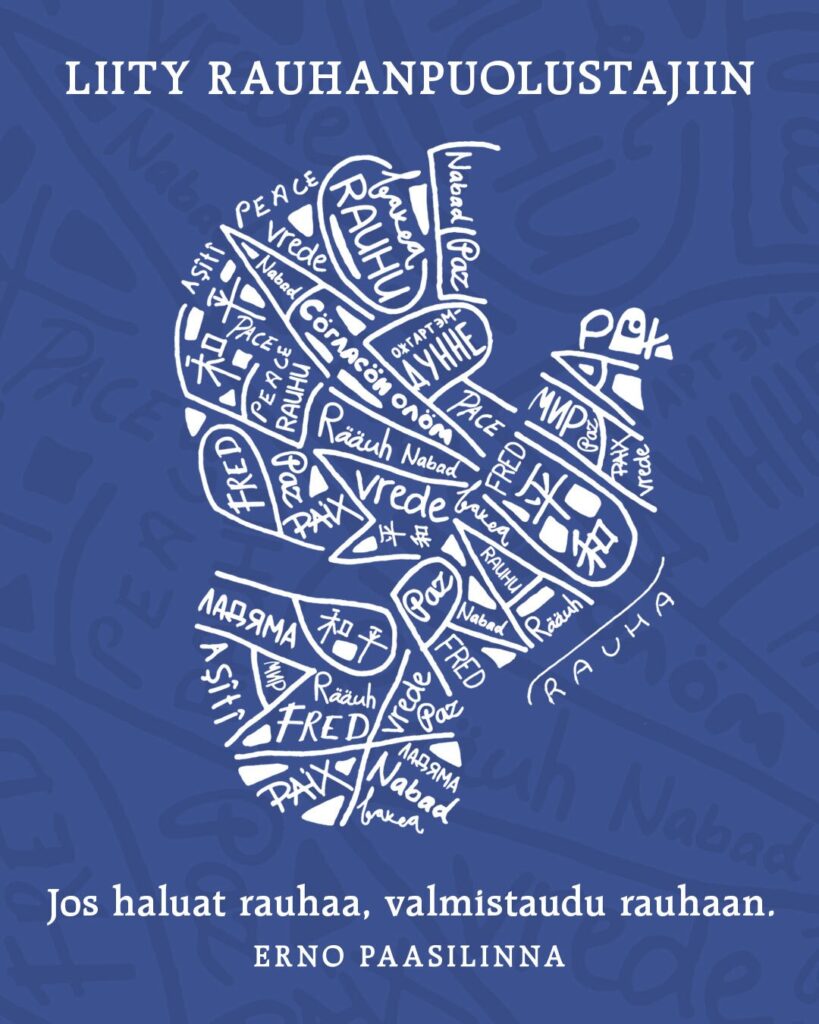The UN Human Rights Monitoring Mission in Ukraine (HRMMU) operates in the country since March 2014 as the UN Secretary-General’s reaction to the developments, at the invitation of the Government of Ukraine.
The HRMMU documents human rights violations and violations of the international humanitarian law, records conflict-related civilian casualties, reports on the human rights situation in Ukraine; advocates for human rights protection with state and non-state actors; reviews law drafts and advises the Government on compliance with international human rights and IHL standards; and provides technical assistance to national stakeholders, including civil society.
The Mission has offices in Kyiv and both sides of the contact line: Donetsk, Kharkiv, Kramatorsk, Luhansk, Mariupol and Odesa. The work on Crimea is covered from the Kyiv and Odesa offices.
As of March 2021, OHCHR has published 31 periodic reports and 8 thematic public reports. The reports are publicly available on the OHCHR website. These reports provide a comprehensive overview on the human rights situation in Ukraine as well as recommendations on how to improve it.
Matilda Bogner, the head of the HRMMU, agreed to communicate on the findigns reported by the Mission.
Civilian casualties of the conflict
Speaking about civilian casualties on both sides of the contact line, Matilda Bogner told, that the total death toll of civilians during the conflict is at least 3,375 (including 298 on board of flight MH17) and over 7,000 injured. The worst period was from June 2014 until mid-February 2015: over 80 per cent of all conflict-related civilian casualties. The yearly breakdown of conflict-related civilian deaths is the following: at least 2,084 in 2014; 954 in 2015; 112 in 2016; 117 in 2017; 55 in 2018; 27 in 2019; and 26 in 2020.
Regarding the causes of conflict-related civilian deaths, the breakdown for the entire conflict period is approximately 79 per cent due to shelling, small arms and light weapon fire and air strikes; approximately ten percent from mines and explosive remnants of war, nine per cent are victims of the MH17 incident, and approximately two per cent are due to other conflict-related causes (killings by armed actors, road incidents with military vehicles, etc). In 2020 there were 17 killed and 59 injured by mines and explosive remnants of war; eight killed and 62 injured by shelling, small arms fire and drone strikes, and one killed and two injured by other causes.
Although the Mission does not carry out public opinion surveys, they regularly speak with civilians living in proximity to the contact line, on both its sides. Matilda Bogner tells: ”They are indeed tired of the conflict and want the hostilities stop. Many of them were encouraged by the lull in hostilities in August and September 2020, but told us that starting from October last year, and especially this year, exchanges of fire increased again, and they feel frustrated and desperate”.
Matilda Bogner tells that the total number of civilian casualties in 2020 (149) is the lowest for the conflict period. However, the aim should be zero civilian casualties.
”Despite the fact that the civilian casualty data for the whole conflict period is not complete, as there are gaps for 2014 and 2015 (several dozens of cases which have not been corroborated), we are confident that our records reflect the real scale of civilian casualties.
Peaceful resolution of the conflict would entail complete cessation of hostilities. Until a political solution is found, the only way to effectively stop hostilities is to fully respect ceasefire arrangements. More specifically, it is about fully adhering to, and observing the provisions of the package of additional measures to strengthen the ceasefire that was agreed to in July 2020. More broadly, compliance with international humanitarian law is essential, so that the impact of hostilities on civilians and civilian infrastructure is mitigated. Compliance with customary international humanitarian law should always be observed”.
Human Rights situation in Ukraine
The Mission follows the situation with freedom of opinion and expression in Ukraine. Ms. Bogner emphacizes that ”HRMMU already expressed its concernsabout the recently enforced decision to repeal the broadcasting licenses of three television channels. It is a legitimate aim for States to protect their national security, including by countering disinformation, but we are concerned that this decision will impact on freedom of expression in Ukraine. We recall that States are under the obligation to respect, protect and ensure the freedom of expression, including the right to seek, receive and impart diverse information and ideas. HRMMU is assessing the compliance of this decision with international human rights law, in particular the necessity and proportionality of the measures applied.
”The Mission followed the individual cases developed in Ukraine (journalists Ruslan Kotsaba, Vasily Muravitsky, Pavel Volkov) and expressed relevant concerns on the human rights situation in Ukraine from August 16th to November 15th 2017. This in particular refers to the broad interpretation of terrorism-related provisions of the Criminal Code, as well as the provisions on high treason and on trespassing the territorial integrity of the country, in earlier cases against Ukrainian journalists and bloggers who publish materials or issue posts or reposts in social media which are deemed as “anti-Ukrainian” by the security service. We are aware of more recent similar cases but it is too early to comment on those. We have to document the cases appropriately, corroborate information received and formulate new (or reiterate previously expressed) concerns. In case human rights violations in these cases are verified, HRMMU will consider including them in its public reporting”
HRMMU also assess the situation with freedom of opinion and expression in territory controlled by armed groups and in the Autonomous Republic of Crimea and the city of Sevastopol, Ukraine, temporarily occupied by the Russian Federation (Crimea). In relation to the situation in territory controlled by armed groups, OHCHR remains concerned about the arbitrary detention of individuals for their social media posts. Matilda Bogner told, ”At least two such cases were recently documented by HRMMU”.
Speaking of the situation in the Crimea, Bogner says, ”we have previously expressed concern that journalists and media workers there face interference with their professional activities by Russian Federation authorities, including law enforcement agencies. These practices included surveillance methods such as phone-tapping, being physically followed by law enforcement officers, threats of physical harm, criminal prosecution, arrests and prohibition of entry into Crimea. Numerous media outlets and individual journalists informed OHCHR that, due to these risks, they would self-censor the content of their publications, conceal their authorship, or limit their reporting to non-political topics and stories. Other journalists outside of the peninsula have decided not to risk physical entry into Crimea or have been banned from such entry by the Federal Security Service of the Russian Federation (FSB)”.
The growing influence of military-like and political formations and groups which are reportedly involved into numerous cases of harassment of people who they designate as their enemies
Answering this question, Matilda Bogner says, ”HRMMU’s efforts are mainly focused on victims of human rights violations. When looking at perpetrators, HRMMU is aware of the activities of groups that promote violence in Ukraine, including some extreme right-wing groups, which are most visible in government-controlled territory. HRMMU has repeatedly stated and maintains that impunity for crimes committed by these groups risks encouraging new attacks and threats”.
According to HRMMU’s observations, in several individual cases, the victims of the pressure are threatened or subjected to other acts which are illegal and criminalised. Bogner enourages victims to submit complaints to the police.
The humanitarian situation along the contact line. The impact of the COVID-19 pandemia
Bogner says, that the humanitarian situation along the contact line remains a matter of concern to the United Nations. The conflict in eastern Ukraine affected more than 5 million people, with 3.4 million of them in need of humanitarian assistance and protection. Out of these 3.4 million people, 54 per cent are women, 16 per cent are children and 13 per cent are persons with disabilities. There are some 1.9 million civilians residing anywhere between 0 to 20 km to the contact line on both sides, who need humanitarian assistance and support.
In 2020, the difficult humanitarian situation was further exacerbated by the impact of the COVID-19 pandemic. Civilians lost their jobs and means of livelihoods, had less opportunities for employment and so people’s ability to cover their basic needs was further reduced. Access to healthcare and medicine, sanitation and hygiene, education, shelter and winterization were amongst the main issues, as well as freedom of movement, notably across the contact line.
Freedom of movement is key for civilians affected by the conflict, including internally displaced persons (IDPs). It helps them to keep their family links, withdraw cash, receive pensions and social payments, get administrative procedures done, access markets and other services and enjoy other rights. Given the restrictions and limitations imposed since March 2020 due to COVID-19 in Donetsk and Luhansk regions, hundreds of thousands of civilians were unable to cross the contact line, even under humanitarian grounds, in a dignified manner. At some point, the operation of all five entry-exit crossing points in Donetsk and Luhansk regions were suspended. Now the situation is better, with the entry-exit crossing point in Stanytsia Luhanska (Luhansk region) operating on a daily basis. In Donetsk region, only a limited number of people are able to cross the contact line due to restrictions imposed by ‘Donetsk people’s republic’. Those leaving territory controlled by the self-proclaimed ‘republic’ continued to be forced to sign a paper stating they cannot return until the epidemiological situation improves. Matilda Bogner stresses, that such restrictions continue to negatively affect the civilian population and to impact their rights to family life, health, work, social security, and an adequate standard of living. As a result, many people opt for crossing to Government-controlled territory through the Russian Federation exposing themselves to additional health risks, hardships and financial expenditures.
The language situation in Ukraine
Describing the language situation in Ukraine, Matilda Bogner said, ”our key concern is the lack of effective legislation to protect the use of minority languages in Ukraine. The law “On supporting the functioning of the Ukrainian language as the State language” (also known as the law on State language) provides only a general framework for the use of Ukrainian as the State language, and does not regulate the use of minority languages. We expect that this situation will be improved by elaborating, without delay and in close consultation with a balanced representation of language, national and other minorities, a law on the protection of minorities specifically focusing on their language rights. The need to develop such a law is furthermore expressly required by the law on State language”.
She worryingly tells, that since January 2021, the Mission has received information indicating a wave of threats and expressions of hatred towards individuals who publicly criticised the law on State language, or expressed any positive views of the Russian language.
At that, Matilda Bogner tells of their awareness of ‘amendments’ to ‘law’ on education of self-proclaimed ‘Donetsk people’s republic’, establishing Russian as the ‘official’ language in educational ‘institutions’ in territory they control. These changes were already in place for the 2020-2021 academic year. Similarly, in June 2020, the same approach to the Russian language in education ‘institutions’ was introduced in territory controlled by self-proclaimed ‘Luhansk people’s republic’. Bogner says ”In this regard HRMMU notes that armed groups of self-proclaimed ‘republics’ should refrain from taking any measures that prevent study of Ukrainian and minority languages”.
In the light of the coming UN Decade of indigenous languages, the UN Mission in Ukraine contributes to raising awareness about the existence of different indigenous peoples and languages in Ukraine. This is relevant not only for the Crimean Tatar people, the most well-known indigenous people in Ukraine, but also for the Karaites and Krymchaks. Matilda Bogner tells, ”We work closely with UNESCO, which is the lead agency for the UN Decade of Indigenous Languages. It also monitors the situation in Crimea, within its fields of competence, and we look forward to offering our support during the UN Decade”.
Positive changes are feasible despite hardships
Matilda Bogner states, ”the reports the Mission produces are widely used by national and international stakeholders who work to improve the situation of people and bring about positive change”.
The Mission’s work has already contributed to the positive changes in the country.
According to Bogner, the Mission has managed to achieve the following:
• The Mission has documented over 600 cases of torture and ill-treatment of conflict-related detainees. Through its direct intervention, HRMMU contributed to the opening of investigations by law enforcement agencies and the provision of redress.
• The Mission enabled a dialogue between the Ombudsperson’s Office of Ukraine and the self-proclaimed ’Donetsk people’s republic’ to help transfer prisoners who were convicted before the beginning of the armed conflict from territory controlled by armed groups to Government-controlled territory. As of July 2020, more than 400 pre-conflict prisoners had been transferred.
• HRMMU has provided legal expertise and reviewed multiple draft laws, such as on temporarily occupied territories, on missing persons, and on the protection of civilian victims of the armed conflict.
• HRMMU facilitated the development of Ukraine’s first Human Rights Strategy and National Human Rights Action Plan in 2015. In partnership with UN Women, the Mission also assisted the Office of the Deputy Prime Minister on Europe and Euro-Atlantic Integration to develop the national strategy ‘Strategy for Prevention of and Response to Conflict Related Sexual Violence in Ukraine’, which has been endorsed by the Deputy Prime Minister in November 2018.
• In addition to its regular monitoring, HRMMU is monitoring the impact of COVID-19 and related prevention and mitigation measures on the human rights situation in Ukraine, especially in the conflict-affected area, and more broadly in Ukraine, with a focus on people in situation of vulnerability, in order to ensure we leave no one behind. HRMMU advocacy efforts already resulted in some improved response measures for people in vulnerable situation, e.g. more shelters for homeless people.

